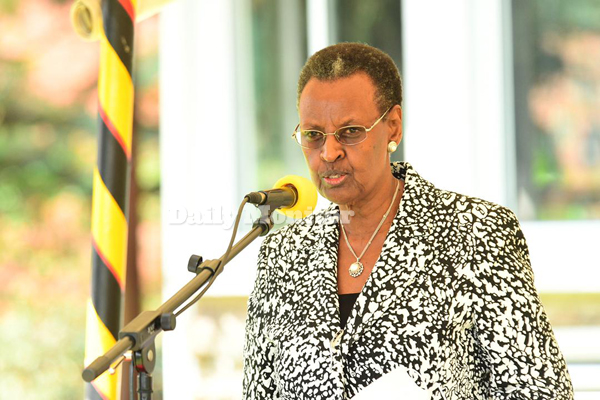Discuss education sector plan before it’s too late

First Lady and Education Minister Janet Museveni. PHOTO/ DAVID LUBOWA
What you need to know:
The issue:
Education .
Our view:
Prioritise vaccination, invest in remote education programmes/ learning materials and curriculum review.
The pandemic has changed the education sector in profound ways. The two lockdowns have had a severe impact on every family and on every aspect of education in this country.
The education sector remains in limbo even as President Museveni eases the lockdown restrictions. The absence of a risk-free return-to-school strategy, born out of a wide consultative process, has complicated matters. Our view is that for government to suppress transmission of the virus, there must be deliberate plans to vaccinate all the 21.9 million high-risk people, including learners and teachers, with and strict adherence to SOPs. This will speed up the reopening of education institutions.
To date, the country is stuck with two clusters of learners in S.1 and S.5. The enigma of Covid-19 infections in schools and nonadherence to SOPs remain unresolved. Some learners have dropped out, as well as their teachers, and more than 1,000 private schools have either been demolished or auctioned due to debts and prolonged lockdown.
The Covid-19 crisis has also worsened pre-existing education disparities and reduced the opportunities for most vulnerable children, youth, and adults, particularly those living in poor or rural areas. Nobody knows how authorities in the education sector intend to deal with the impending crisis. This conundrum requires honest roundtable discussions with stakeholders in the sector, including peoples’ representatives in Parliament.
Government has since tied reopening of schools to jabs. But with about five per cent of the targeted 21.9m people vaccinated, the idea sounds like a pipe dream. We, therefore, propose a three-pronged approach to school reopening: Prioritise vaccination, invest in remote education programmes/ learning materials and curriculum review.
The Education minister, Ms Janet Museveni, talked of reopening of schools in a sequenced manner but did not provide details. The absence of a draft school calendar to guide interventions in the sector is making matters worse. The school closures are essential, but we cannot hide behind the pandemic every time we are challenged on our inability to deal with the challenges in the sector.
Many of the children – particularly those in poorer households – do not have internet access, personal computers, TVs or even radio at home, worsening learning inequalities. These things were promised last year but for unclear reasons remained unsettled. But the government should know that failure to deal with these gaps might turn learning crisis into a generational tragedy.
As Uganda vacillates, other countries in similar situations are busy exploring alternative ways to provide continuous education through remote learning technologies. Let us get serious before it is too late. The government must provide all the necessary resources to ease access to learning materials and intensify search for Covid-19 vaccines.




